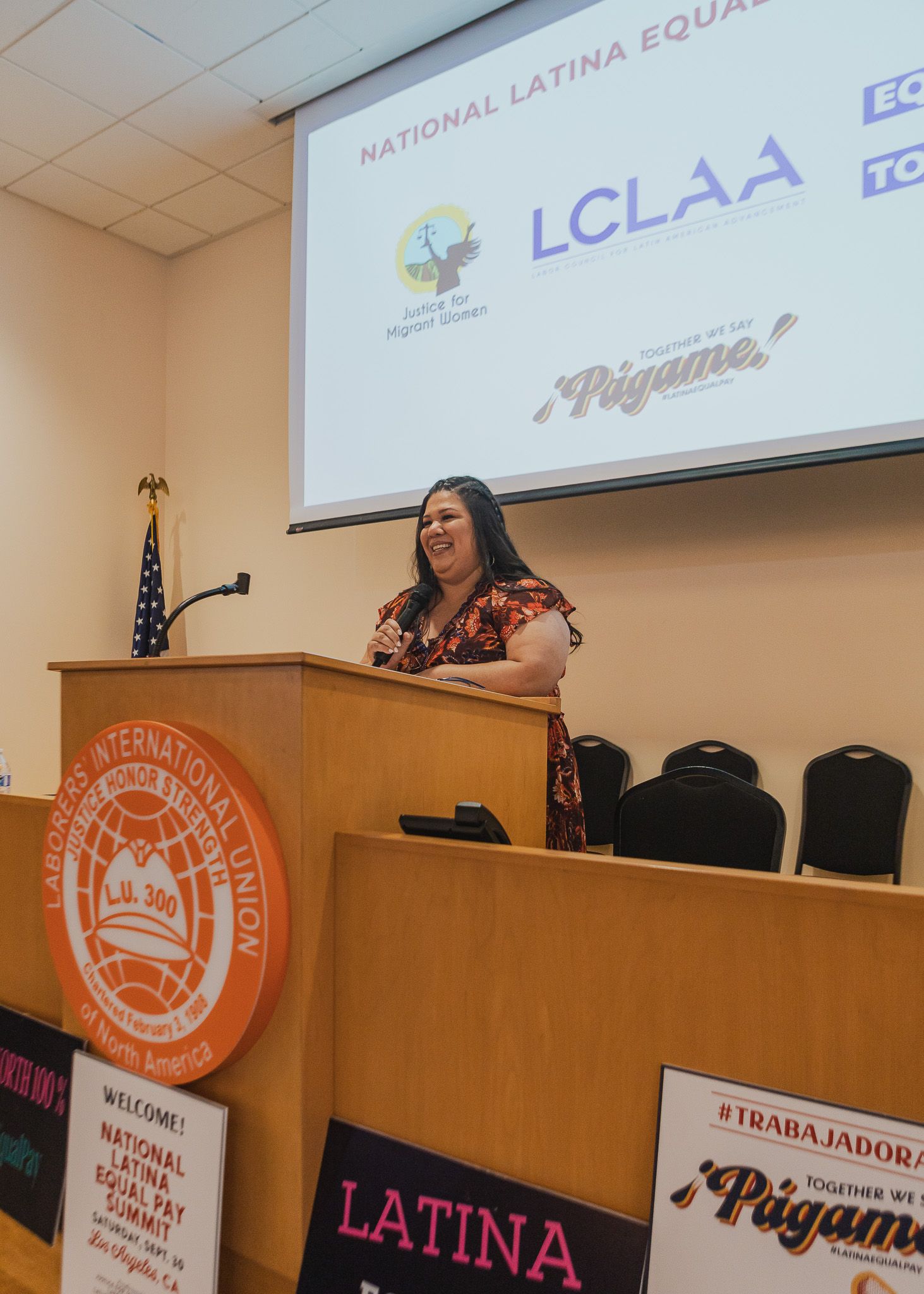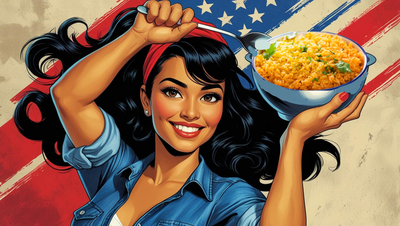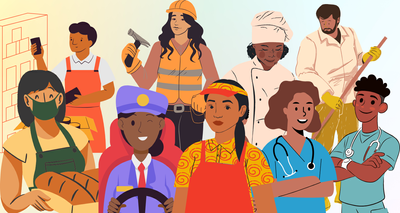Latina Equal Pay Day is a significant day dedicated to raising awareness about the pay disparity that exists for Latina women in the United States. It marks the date to which Latina women need to work into the new year to earn what non-Hispanic white men earned in the previous year. In essence, it highlights the substantial gap in wages between Latinas and white men.
These gender and racial inequalities in wage gaps not only affects individual livelihoods but also has broader implications for families and communities across the United States.
Achieving equal pay for Latina women is not just a matter of fairness; it's a matter of economic justice and an essential step toward creating an inclusive, equal opportunity society for everyone in the United States. When you lift marginalized women you lift all of the greater community.BoldLatina's Editorial Director, Vanessa Nevarez took a moment to speak with activist Mónica Ramírez CEO of Justice for Migrant Women who is promoting the LATINA EQUAL PAY campaign on Oct. 5th.

To recognize this Latina Equal Pay Day, Justice for Migrant Women and partner organizations will deliver a letter to Congress highlighting critical legislation that would help close the pay gap and provide economic security to Latinas. Such priorities include: Paycheck Fairness Act, Raise the Wage Act, and the impact of the Farm Bill on rural Latinas. We are calling on lawmakers to rectify historic injustices. Latinas lose at least 1 million over their careers due to the pay gap and these disparities are harmful to the growing Latinx population across the United States.
Tune in to the interview featuring Mónica Ramírez to expand your understanding of Latina Equal Pay Day actions we can take both individually and collectively.
Hi Mónica! I'm Vanessa. I'm an editorial director for BoldLatina. Thank you for taking our call, I just have to do some housekeeping. Is it okay if we record this interview? What should people of non-Latino heritage care about this day?
Mónica: Well, people who are non-Latinos should care about this day because it’s marking the fact that Latinas are being paid only 52 cents to the dollar and that means that we have less. and fewer resources to contribute all overall to the economy. You know, it's an injustice and that's not everyone’s moved to talk about what is just and unjust. So when we look at the [inaudible] task or you know the financial implications, but that means that we have one of the largest consumer bases of this nation and we have fewer dollars to be able to invest in the future of this country.
People should care about that, and you know people who care about justice should care about the fact. It's unacceptable, that Latina workers who are working just as hard in contributing so much our country or being paid just half of what we should be paid. That's deplorable. It's unacceptable and it should not be happening in this nation or anywhere. We need everyone to take action. We need people to speak to their political leaders to call for change. We need to understand that if Latinas who are among the lowest paid in this nation are paid equitably. That's gonna lift up everyone, not just the Latina worker or family, but our entire country.
Vanessa: Okay, perfect, and that's a segway from my next question. Obviously education and advocacy is one of the biggest tools and you know the biggest ways to get this message across. It looks like solidarity amongst the Latina community and organizations as well. What other tool or what have you seen? That's been helpful in the last couple of years when we recognize a Latina Equal Payday?
Mónica: Well, either one of the interesting shifts because I see all the partner information you know. We send out the call for partners and and I get to see who signing up and for me one of the interesting shifts is that we've had more corporations and brands reach out to say that they want to be part of the campaign and they want to talk about how they are doing a good job and how they are doing right by Latina workers and that's important, you know the fact that we have created the amount of pressure to make people, you know who are people who we have historically been trying to convince to do the right thing to affirmatively say “no, we want to be counted and included, and we want to be able to lift up how we're, how we're good employers, um, fair pay employers.” I think that's progress because they're obviously a huge group of people who we have to move. The employers are the ones with the power to do right by Latino workers and so seeing a growing number of employers that you know, are raising their hands and saying that they wanna be part of the campaign, I think that is significant.
The fact that we now you know for the past you know six years have been able, I think it's been six years at this point, we've been able to have members of Congress do resolutions in Congress in support of Latina Equal Pay. I think that significant we just had one announce today and we need to make sure that people at the highest levels of government and people with the most power in our country are also elevating this issue because they're gonna bring their peers along and that is how we're gonna get legislative change. Companies are gonna bring their peers along and that's how we're gonna get change in business and we are bringing and holding up each other right? We're celebrating Latina workers are rallying together to say that this isn't okay and we're calling on our alliance to join us. So for the kind of change to happen that is required, it's gonna take policy change, it's gonna take culture change, it's gonna take narrative change, that's gonna take change on the behalf of companies and business practices.
Vanessa: Yeah, of course that it sounds like there's a social awareness and corporate responsibility that has come up in the last couple of years.
Mónica: That's right, and I think also legislatively. We've seen important pieces of legislation being introduced, and the other thing that's really positive is that you know that I've been building this campaign over nearly a decade at this point, and I think another really positive advancement is that across movements people are starting to see the connection between and among movements. So when Latinas are not talking about the pay gap they're talking about the wealth gap they're talking about, you know the fact that there could be even more Latina entrepreneurs if we got paid fairly, you know what we're talking about, the bills that need to be introduced, or passed. We're not just talking about the Equal Pay Act anymore. We're also talking about raising the minimum wage, we're talking about the Domestic Workers Bill, so the way that the conversation has become a much broader conversation, bringing people in from where they are, whatever their interest is. I think that is significant because this is a nuanced problem. It's complex, it' has many ramifications and we need people to be able to see themselves in this larger Latina Equal Pay Day movement that we're building and you know being able to see it grow and change and expand over time for me has been it's been really awesome
Vanessa: Are you the leading organization behind this campaign or are you one of the leading organizations behind this campaign because you just mentioned that you've been working on this for years?
Mónica: Yeah so we co-anchor Justice for Migrant Women and LCLAA anchor the campaign on behalf of the Equal Pay Day coalition, but I started organizing the campaign back when it was decided there would be a Latina Equal Pay campaign. I was the organizer that was asked to organize it so at that time I was working for LCLAA, the Labor Council for Latin America Advancement, and I was working for the National Hispanic Leadership Agenda. So that's why, as you know, my organization Justice for Migrant Women continued to grow. We have continued to be an anchor because I was the lead organizer way back when it was first created.
Vanessa: I see all the beautiful organizations that you guys have partnered with and both local and nationwide. So my question is, Latinas are the biggest growing group both in as far as you know, the citizens and the non-citizens (undocumented) of this nation, but also as entrepreneurs right? We keep hearing those numbers and Latinas are growing businesses faster. Do you think that one of the reasons that we're (Latinas) are growing businesses faster is because we are not getting paid what we're worth in corporate, you know in the corporate world?
Mónica: Well, I don't wanna give corporate America that credit. I think the reason that we're one of the fastest growing demographics of entrepreneurs in this country is because we're brilliant and we're creative and we have really important ideas that we're making come to life. Super businesses are creating, but I do think that, there are some Latinas gotten fed up with being underpaid and underappreciated and they left their job to strike out on their own to create new businesses and opportunities. We also know that there were, you know, more than one million Latinas that were pushed out of the labor market during the early part of the COVID pandemic, and, some of those Latinas who lost their jobs created businesses as a direct response to that. I mean, I think one of the best examples of a shining star in our community is Kayla Castañeda from Agua Bonita. If you know, her business is a rapidly growing business and she's making this really yummy drink. I don't know if you had her Agua Bonita product, it's now being sold at Target and other places, but Kayla started Agua Bonita because she was one of the Latina workers who was pushed out of the workforce. She lost her job during the COVID pandemic and she then created a home business. So I think that there are different factors that come into play when it comes to entrepreneurship. But I think that one of them is the reality that sometimes Latinas are being laid off and they have to find a way to make their way you know, they're creating restaurants and and shops and other things, sometimes in the response to losing their jobs, but in other cases it's because they made the decision that they don't want to endure the poor working conditions any longer.
Vanessa: With the organization Justice for Migrant Women, obviously you guys work for rights and labor work rights for migrant women now how does that factor into this national day for today?
Mónica: So you know our specific focus is on rural and migrant women, and um, you know one way that our work factors into this campaign is that last year we alongside one of our partner organization NAPA, who serves Asian women, Asian Pacific women. Um, we pushed to have the data calculation redone because previously had it had only been taken into account experiences a full time working women, so full time workers who are working year round, and that meant that people who are working a seasonal workers like farm workers or people working in the gig economy, or even you know, the actors and actresses we talk about the actresses right now or on strike. Many of them weren’t even counted, and though the previous pay day calculation because they were not full time workers working year round. So that was a significant advocacy effort on our part and on behalf of our sister organization NAPA. And as a result, now more than 27,000,000 women are being counted in the calculation that had not been previously counted. So that's significant. We try to make sure that whenever we're having calls a conversation about any issue that people are not forgetting about rural and migrant women because they have unique experiences. Unfortunately they face some of the biggest hurdles.
Vanessa: And numbers matter so especially when it comes to legislation. Okay. Well, is there anything else that I didn't touch upon, or something that you'd like to add to end the interview?
Mónica: Well, I mean, I would just encourage people to go to our website JusticeforMigrantWomen.org because there they can sign actual petition urging Congress to pass the Paycheck Fairness Act, which really is the most significant Bill that we need Congress to pass in order to address this issue of an equal pay in our country, and then certainly they should go to the website letting the LatinaEqualPay.org, which is the website that we have in partnership with LCLAA, and it has a lot of resources there related to the equal pay campaign how to get involved that was a built to support. I just really want people to understand that there's a place for them in this movement, whether they're Latina or non-Latina. If there are allies, there's a place for all of us. This isn't just our work. Latina should not also bear the burden on our own of having to close this pay gap. This is the campaign an issue that all of us should be taken on.
Vanessa: Well thank you so much! Okay, perfect! Thank you so much, Monica. I appreciate your time and thank you for all the hard work that you and your organization does and we will definitely stay in touch. Thank you for your time.
Mónica:Thank you so much, take good care.
Ultimately, Latina Equal Pay Day should not only motivate us Latinas to take action but the greater community outside our community need to join in as champions, allies to us —be it through policy changes, advocating for fair wages, supporting organizations that work towards gender and racial equality, or promoting inclusivity in the workplace. It's about coming together as a society to create a world where every individual is valued and compensated fairly for their labor, regardless of their background.
TAKE ACTION Visit https://justice4women.org/ to sign a petition to urge Congress to take action and https://www.latinaequalpay.org/ to further get involved with the campaign.
Interview conducted by Vanessa Nevarez, Editorial Director - BoldLatina.






